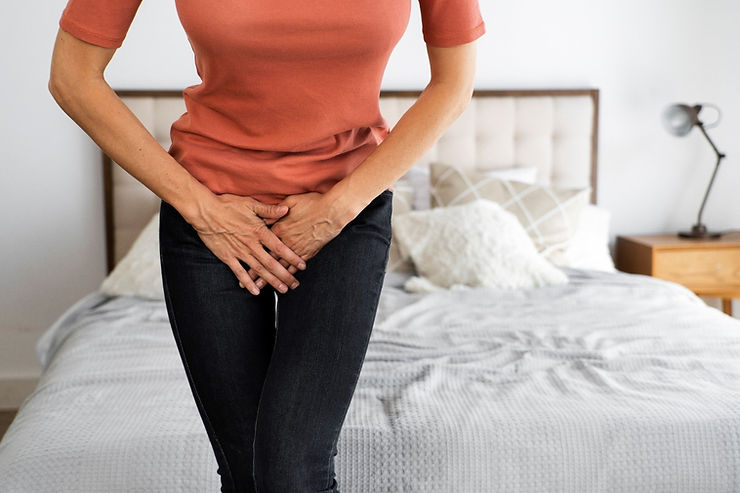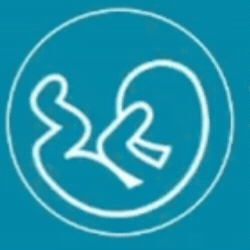Urinary incontinence is a common but often underreported condition that can significantly affect a person’s quality of life. It is characterized by the inability to control urination, leading to the unintentional loss of urine. This condition can be temporary or long-term and can vary in severity from a minor inconvenience to a debilitating problem. In this comprehensive blog, we will delve into the types, symptoms, and treatment options for urinary incontinence.
What is Urinary Incontinence?
Urinary incontinence is defined as the loss of bladder control, resulting in the involuntary leakage of urine. This condition can affect people of all ages and genders but is more prevalent among women, especially those who have experienced childbirth, menopause, or advanced in age. Men, particularly those with prostate problems, are also at risk.
There are several types of urinary incontinence:
- Stress Incontinence: This occurs when urine leaks due to pressure on the bladder from physical activities such as coughing, sneezing, laughing, or exercising.
- Urge Incontinence: Also known as overactive bladder, this type is characterized by a sudden, intense urge to urinate followed by involuntary urine loss.
- Overflow Incontinence: This happens when the bladder cannot empty completely, leading to frequent or constant dribbling of urine.
- Functional Incontinence: This type is due to physical or cognitive impairments that prevent a person from reaching the toilet in time.
- Mixed Incontinence: This is a combination of two or more types of incontinence, typically stress and urge incontinence.

Symptoms of Urinary Incontinence
The symptoms of urinary incontinence can vary based on the type, but common signs include:
- Leaking Urine During Physical Activity: This can happen when engaging in activities that put pressure on the bladder, such as coughing, laughing, or exercising.
- Sudden Urge to Urinate: An overwhelming and urgent need to urinate, often followed by involuntary leakage.
- Difficulty Holding Urine: Struggling to hold urine long enough to reach the bathroom. Frequent Urination: Needing to urinate more often than usual.
- Nocturia: Waking up multiple times at night to urinate.
- Avoiding Social Activities: Fear of leakage can lead to social withdrawal and avoidance of activities.
If you are experiencing these symptoms, it is essential to speak to a healthcare provider who can diagnose the underlying cause and recommend appropriate treatment options. Urinary incontinence can be a sign of an underlying medical condition, and addressing it promptly can prevent further complications.
Causes of Urinary Incontinence
The causes of urinary incontinence can be diverse and multifactorial. Some common causes include:
- Age: As people age, the muscles in the bladder and urethra can weaken, leading to incontinence.
- Pregnancy and Childbirth: The physical changes and stress on the pelvic floor muscles during pregnancy and childbirth can cause incontinence.
- Menopause: Hormonal changes during menopause can weaken the bladder and urethra muscles.
- Neurological Disorders: Conditions such as Parkinson’s disease, multiple sclerosis, and spinal cord injuries can affect nerve signals involved in bladder control.
- Prostate Problems: In men, prostate enlargement or surgery can lead to incontinence.
- Obesity: Excess weight can increase pressure on the bladder, leading to stress incontinence.
- Chronic Conditions: Diabetes, stroke, and other chronic conditions can contribute to incontinence.
Treatments for Urinary Incontinence
The treatment for urinary incontinence depends on the type and severity of the condition, as well as the underlying cause and the individual’s preferences and medical history. At Feto Maternal & GenetYX Center, we offer personalized treatment plans tailored to each patient’s unique needs.
Lifestyle Changes
Simple changes in behavior can significantly improve symptoms. These include:
- Weight Loss: Reducing body weight can decrease pressure on the bladder.
- Fluid Management: Limiting fluid intake, particularly before bedtime, can help reduce nocturia.
- Dietary Changes: Avoid caffeine, alcohol, and spicy foods that can irritate the bladder.
Pelvic Floor Muscle Exercises
Also known as Kegel exercises, these can strengthen the muscles that support the bladder and urethra, reducing symptoms of stress incontinence. A physical therapist can guide you on how to perform these exercises correctly.
Medications
Certain medications can help manage symptoms, including:
- Antimuscarinics: These drugs help relax the bladder muscle, reducing the symptoms of urge incontinence.
- Beta-3 Adrenergic Agonists: These medications relax the bladder and increase its capacity.
- Topical Estrogen: In postmenopausal women, applying estrogen cream can help rejuvenate and strengthen the tissues around the urethra and vaginal areas.
Bladder Retraining
Medical Devices
Surgical Options
In some cases, surgery may be necessary. Options include:
- Sling Procedures: These involve placing a mesh sling around the urethra to support it and prevent leakage.
- Colposuspension: This procedure lifts the bladder neck and urethra to prevent stress incontinence.
- Prostate Surgery: For men with incontinence due to an enlarged prostate, surgery to remove part of the prostate may be necessary.
Injections
Neuromodulation
Seeking Professional Help
It is crucial to consult a healthcare provider if you are experiencing symptoms of urinary incontinence. A thorough evaluation can help determine the type and cause of incontinence, allowing for an appropriate and effective treatment plan.
At FMGC, our gynecology specialists are dedicated to providing compassionate and comprehensive care for individuals experiencing urinary incontinence. We offer a range of advanced diagnostic and treatment options tailored to your specific needs, helping you regain confidence and improve your quality of life.
Urinary incontinence is a common and often distressing condition, but effective treatments are available. By understanding the types, symptoms, and causes of incontinence, and exploring the various treatment options, individuals can take proactive steps towards managing their condition. Whether through lifestyle changes, pelvic floor exercises, medications, or surgery, there is hope for those affected by urinary incontinence.
If you or a loved one is experiencing urinary incontinence, don’t hesitate to seek professional help. Early intervention and appropriate treatment can make a significant difference in managing symptoms and improving overall well-being.
At FMGC, we understand the emotional and physical toll of pregnancies. Our team of best obstetrics gynecologists are committed to providing compassionate care and comprehensive support to help you through this blessed time. If you or a loved one is expecting, please reach out to us for expert care and guidance.
Contact Us: Feto Maternal & GenetYX Center Dubai, UAE
Follow Us on Social Media: Facebook: FMGC Facebook
Instagram: FMGC Instagram
LinkedIn: FMGC LinkedIn
Twitter: FMGC Twitter

